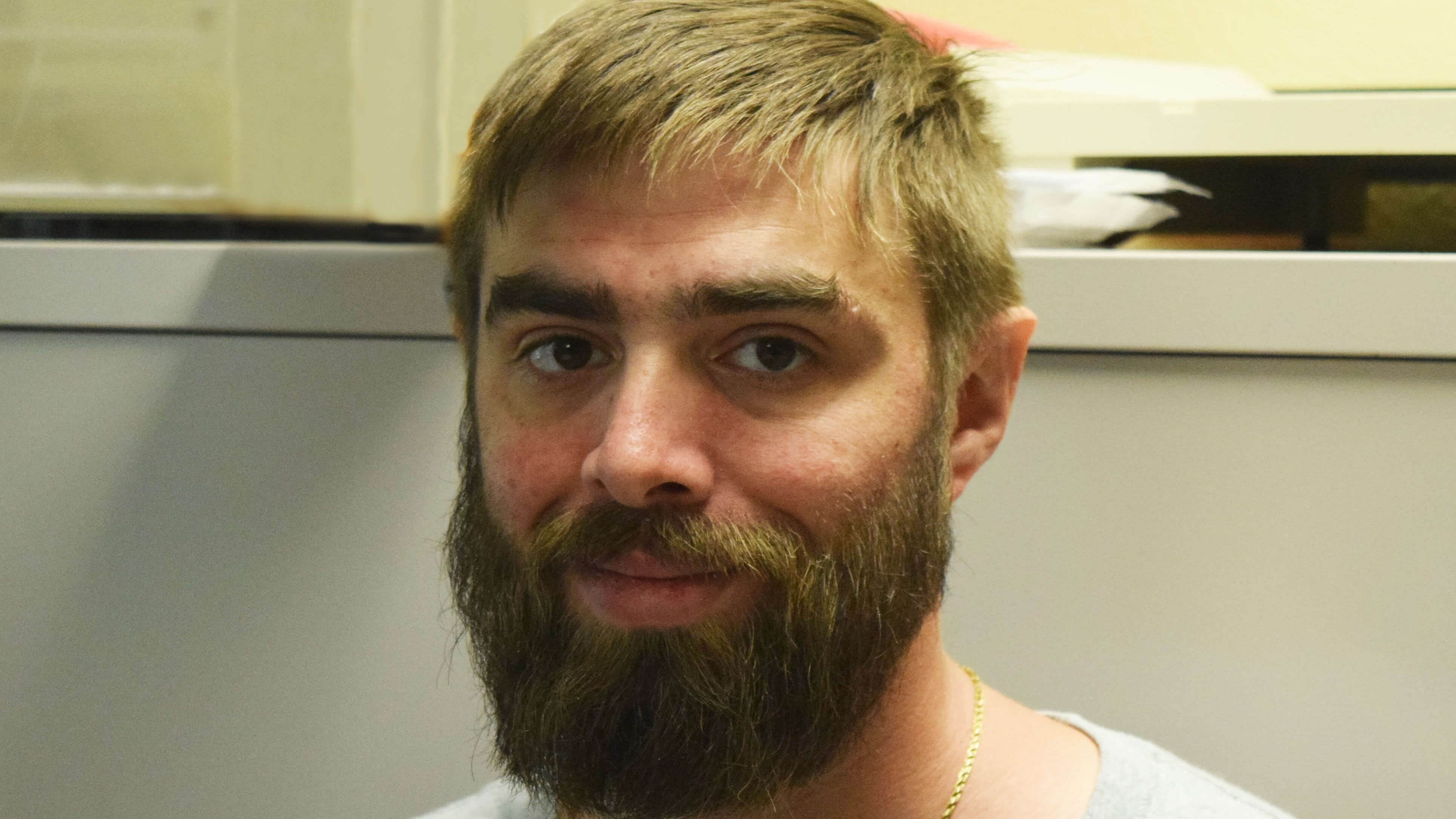Peace of Mind - An HSNT Patient Story
&srotate=0)
From a young age, Edward Mikulec was strangely flexible. He could bend his elbows in unusual ways, and his bones popped out of place easily. When his physician at school said that he was double-jointed, Edward believed him. It made sense. But it wasn’t until he was in his thirties that he found out otherwise.
It started with his heart.
“I was 29 when they told me I had an aneurysm in my aortic root,” Edward says. “At that point I didn’t want to hear what they could do, because I really felt left behind, by the system, by my parents, by everybody. I didn’t take any accountability for myself.”
Edward’s mother died when he was very young, and his father left shortly after that. Raised by his grandmother in Cleveland, Ohio, Edward struggled with finding his place in a community that he felt had passed him by. Once he got married in his twenties, he moved across the state to Youngstown, where he had a son. An accident at his job left him unable to work, and that spurred his wife to take their son and leave him behind.
“I didn’t really know what to do, so I moved from Youngstown back to Cleveland, I got in touch with some friends, and they were doing meth. And I didn’t really know what it was, but I figured ‘Hey it wasn’t heroin.’ That was probably the roughest patch I’ve ever been through.”
It took Edward another few years to have the surgery. Beforehand, he had to undergo a genetics test, which was standard procedure for the operation. The surgery was successful, and Edward was in rehab, supported by his girlfriend that he had met in Cleveland. Then, in February of 2017, Edward got the results back from his test and was told he had vascular Ehlers-Danlos Syndrome (EDS) . He didn’t know what it was or what it meant. He’d never even heard of it.
“Why do they call it a zebra?” Edward asks, referring to the mascot of the Ehlers-Danlos Society. “Because you blend in. Everyone else sees you as normal, but you know you’re not normal, you know something’s wrong.”
EDS is a rare genetic disorder that affects the connective tissues supporting the skin, bones, and many other organs. The most common symptoms are hypermobility and muscular pain, but most of the time it’s impossible to tell someone has EDS just by looking at them. Edward’s type of EDS, which affects his heart, is estimated to affect only 1 in 50,000 to 200,000 people.
“They see this 36-year-old guy and in the beginning, they all thought ‘oh this guy’s lazy, he doesn’t want to work… you can talk on the phone, right?’ No, I talk on a speakerphone. My wrists pop out pretty easily…I can walk for like 45 minutes but then I can’t move for the rest of the day. And it’s only going to get worse.”
When Edward and his girlfriend moved to Denton and found out that Texas did not have the Medicaid expansion, he started looking for community services. “I tend to do a lot of research, especially with my condition,” he says with a laugh. “That’s how I found you guys.”
Currently, there is no cure for Ehlers-Danlos Syndrome. But the way Edward sees it, having a support system is the best way to manage his condition – and that’s where HSNT comes in.
“It’s more of a support team, you know, having someone who knows about this stuff. It’s been a peace of mind. It’s nice that I can go somewhere immediately…. My experience has always been good, they’ve always been patient. They know what they’re doing.”
He was surprised at the variety of services HSNT has, like behavioral health and case management, unaware that those options were even available. What surprised him most was the quiet and the calm of the waiting room. “You know, the people, the patients, they don’t seem to wait very long. I haven’t had to wait longer than 5 minutes. The staff was all nice, understanding, and got to business real quick.”
Currently, Edward is supported by his girlfriend and both their families while he tries to find a way back on his feet through filing for supplemental disability. He’s been sober since October 19th, 2017, and he attributes that to the support from the people around him.
“My girlfriend studies viola. She’s in her second year of her doctorate at UNT. It’s been a calming in my life. Classical music and blues, in general, it’s been a focal point, because I constantly have rhythms in my head, and she’s helped a lot with that. Kind of a side of me that I never knew was there.”
“Aside from my son being born,” Edward says with a smile, “it’s been the best part of my life.”
................
Want to Help Make a Difference?
The care that HSNT provides to families and individuals like enables them to live with peace of mind, knowing that their health is in good hands. Give your neighbors a hand up with their healthcare.